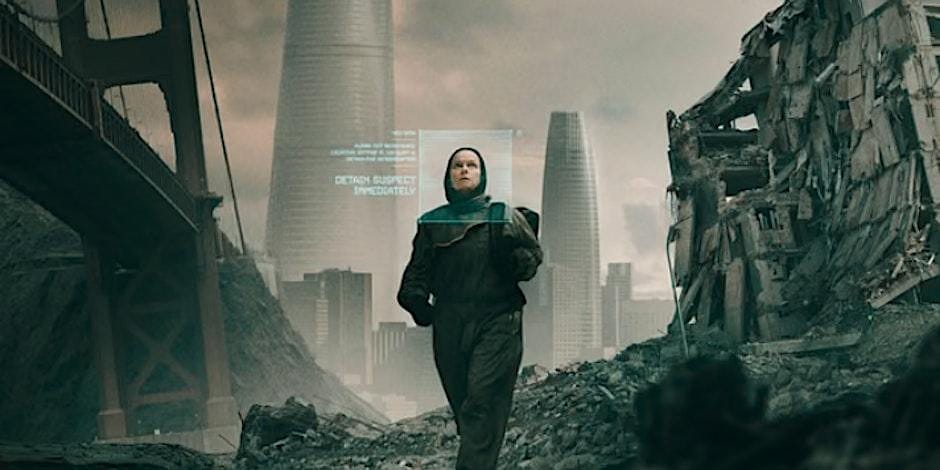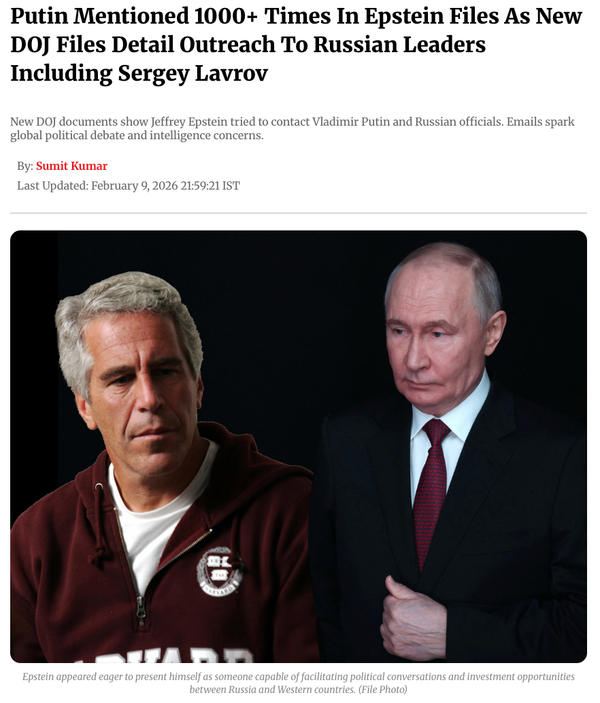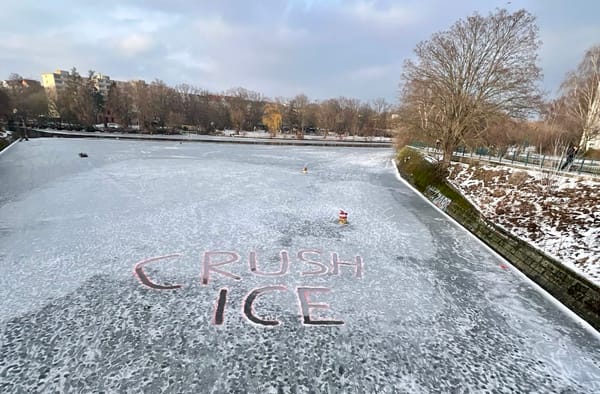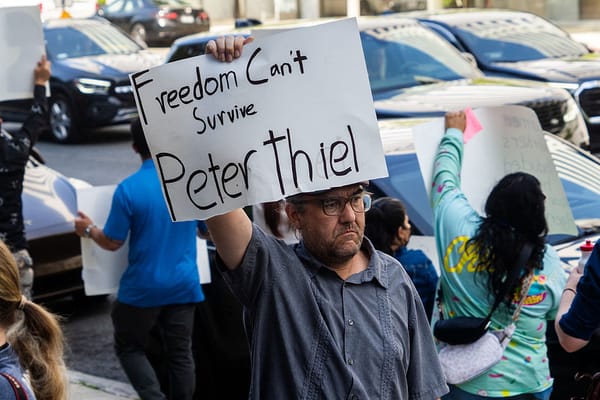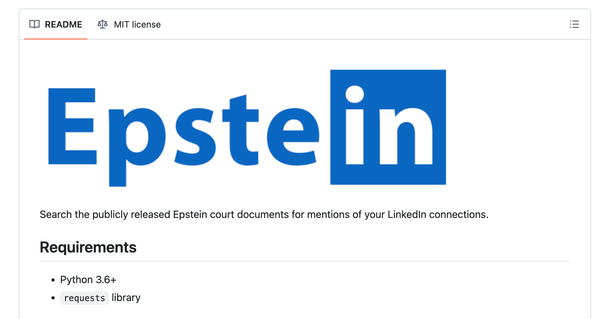The science fiction movie that isn't fiction
An interview with Director Asif Kapadia whose film 2073 could be set in 2025
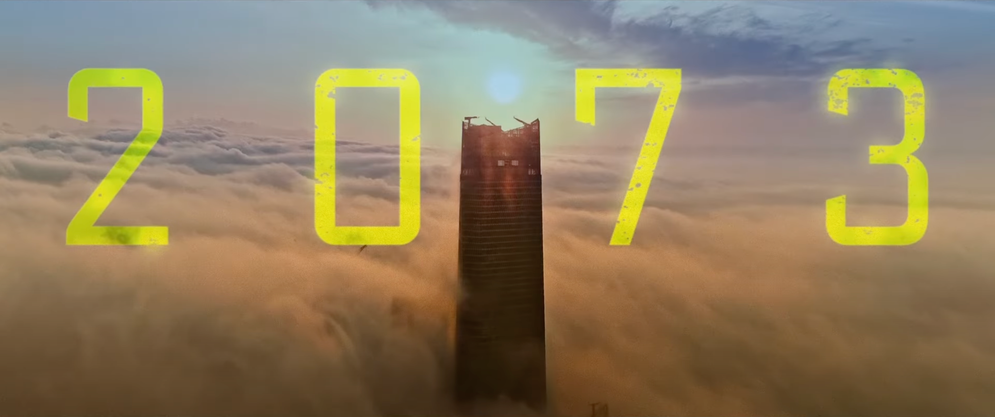
The Citizens’ journalist Manasa Narayanan sat down with Academy Award and BAFTA-winning director Asif Kapadia to discuss his new feature documentary 2073.
Over the last months we’ve been working closely with Asif, because the issues his film 2073 brings to life are the same ones we have campaigned about for years; the cosy relationship between our world leaders and the Tech Bros, their unchecked wealth and power, the increasing use of surveillance technology, the decimation of our information space, and more.
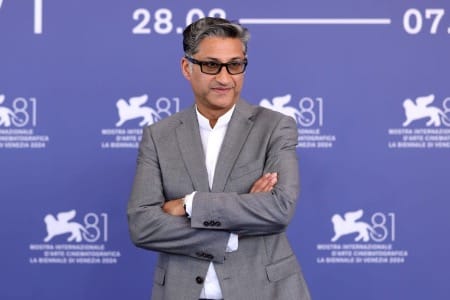
These issues are interconnected and 2073 manages to join the dots in a way we’ve never seen before. We are using it as an opportunity to bring audiences, climate, technology and democracy campaigners and journalists together.
In the coming months, you will see more events like our recent 'Warnings to America', and you’ll get invitations to special screenings like this one we are doing with our friends at Byline Times. You’ll have access to exclusive content and more.
This Q&A is brought to you in two parts. Often as writers and journalists we have to keep to a word count or risk losing our readers. But for this, because the subject is so close to our hearts, because the timing couldn’t be more relevant, and because the conversation is so interesting - we’ll put it all out.
Part one of this interview is about populism and surveillance - two of the central themes of 2073. In part two, coming this Friday, Asif talks about the difficulties of making and releasing this film, the power of journalism and the need to come together.
Manasa: The film is out in cinemas now, congratulations! For anyone who is reading this and has not watched the film, how would you describe it? In a line…
Asif: Oh, wow… It's my fear and vision of the future, based on the experience of everything I see happening now in the present, created out of pieces of the past…
Manasa: So the film has sci-fi elements to it, positioned as a post-apocalyptic take on the world. You are depicting a vision of the future where we have failed to deal with rising authoritarianism, we have failed to address the rising technocratic order, and we have failed to mitigate climate disaster. And in this dystopia the world is also a full-blown surveillance state which is simultaneously suffering the wrath of nature. It’s also an extremely unequal world because you have got this bunch of elites who live in a luxurious bubble and you have got all the rest of the people, attempting to survive with nothing in a police state.
Among other themes, why was it important to you to focus on Big Tech and the rise of authoritarianism?
Asif: So what is interesting is, films take a long time to make. As we're talking now the Tech Bros are literally in the government. They're sitting next to President Trump. When I started the film four or five years ago, they were still these young, cool, rich, smart apps that everyone used and cars that people were thinking, ‘that is going to save the planet’.
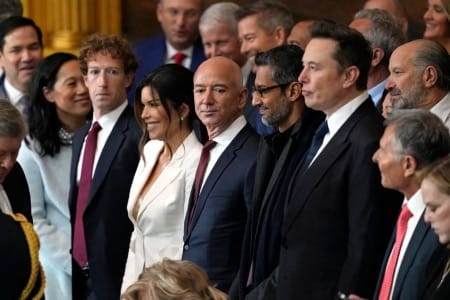
A big thing about making films for me is I go on a big journey. I don't start off making a film knowing what the film is going to be or where it's going to end up. And I am absolutely not in control of what is happening in the world while I'm making the film. But I have instincts, and my gut instinct was there is a lot of shit coming our way. My gut instinct was based on personal experience.
Particularly with this film, my experiences were personal in many ways. Because my family are from India, from Gujarat. I was aware of [Narendra] Modi for a long time, and I saw how he rose to power. And I have seen how India has changed as it has become modernised, but also become more divided.
I have worked in Latin America. I made a film in Brazil, Senna. And I saw what was happening there. The people I was working with were arguing amongst themselves, and I did not understand Portuguese, and particularly Brazilian Portuguese. And I was like, what are you arguing about? And there were young people saying, we need a dictator. We need the military. We need a tough guy to come along to clean up all the bad guys and just shoot them. And I was like, what are you on about? And I had the older people on my crew who had grown up with a military dictatorship saying, you don’t know what you are talking about. You do not want to live under military dictatorship. The person whom I worked with, his dad had been locked up by the military in the 80s. For someone my age, it is not a long time going back to when they had a dictatorship.
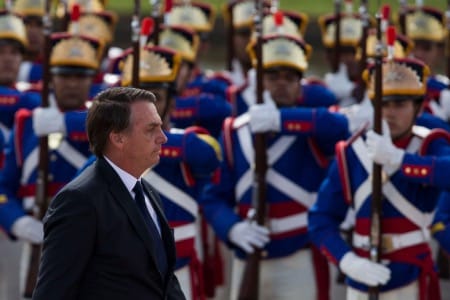
I have worked in Argentina, I saw it happening there and I saw how the financial crashes affected them. So in Brazil it was pre-Bolsonaro. In Argentina, this was pre-Milei. In India, it was during the rise [of Modi] before he became Prime Minister, seeing that. And then I travel in Eastern Europe and I've been to a lot of countries and you realise the rise of the right, the fascist right, is happening in a lot of countries. And then it happens here. And for me the big turning point was Brexit. And I have worked a lot in America and I have been there before 9/11, post 9/11. I was shooting there during the Clinton-Trump election and seeing the language and seeing on the street how many people wanted Trump to win. And none of the people I worked with thought Trump would ever win. And I kept saying, he is going to win. You do not understand, you are not paying attention. They said, he is an idiot, he is stupid. And that underestimating of him and underestimating of the voters.
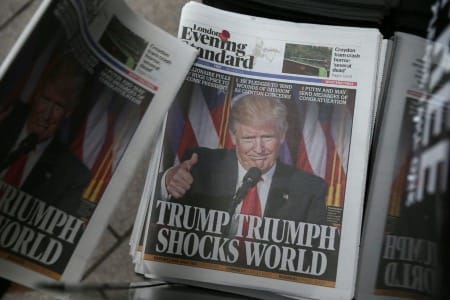
I have been to the Arctic, I’ve been to the Himalayas, I have seen how much ice has reduced over time. I’ve been to the Amazon rainforest. Luckily, through my work, I can see all of this stuff happening.
I'm always thinking, can't everyone else see this? And you go, well, why would they if they haven’t been to the places I have been to. And had the experience that I have, coming from my background. So you realise, you are quite unique and maybe you should try and put that into a film. And so 2073 is my attempt to put all of my experience into a film.

But even as I am making it - things keep changing. Trump left the White House, and people are saying - Why is he in your film? He’s old news. I kept him because I thought I was capturing a moment in time. And my film is a time capsule of recent years. And I want people in the future to go, my god, you elected Trump. Boris, Johnson, Farage… all these people I was hoping would be long gone and forgotten in the past…
The reality is, by the time the film comes out, every one of them, if they are not already in power, soon will be. All of them hang out. As Rana Ayub says to me during our interview, it is like they are all on a WhatsApp group. It is like they are literally sharing notes on how to become an authoritarian.
For me, I've been feeling like this for a long time. And what I feel now is when the film comes out, a lot of people are suddenly feeling it too. But brown people probably have been feeling it. Black people have been feeling it. Poor people have been feeling it. Certain people have been feeling this a long time, wherever they are in the world. And now middle class, white people, wealthy people, educated people, people who have been to Oxford and Cambridge and Harvard are suddenly worried.
Manasa: I find it very interesting that you started out thinking this would be a relic to realise how crazy a period that was…
Asif: Those were the good days! What I realised is I started a film wanting to record it, but still feeling worried about where we were going. But obviously thinking, there is always a chance you are wrong. I hoped the world was led by people who wanted the world to become better, more equal, fairer. Naively, I thought that. Even if I do not agree with your politics, I think you believe in something and you still want to improve things. And I would say that Brexit was the first really explicit idea built on racism, built on the idea that immigration is bad. And all these people want to come in here and steal your jobs, therefore go after them and attack them. Meanwhile, we will not pay tax or we will hide our money offshore.
I just remember the bit where the BBC constantly had [Nigel Farage] on. It was when the radio did not question him anymore. TV did not. Question Time let Farage on constantly, but would never have Carole Cadwalladr on. And I kept thinking, oh wow, this is going to happen. Because again, people in the bubble, in London, are seeing one thing and the rest of the country is thinking something else.
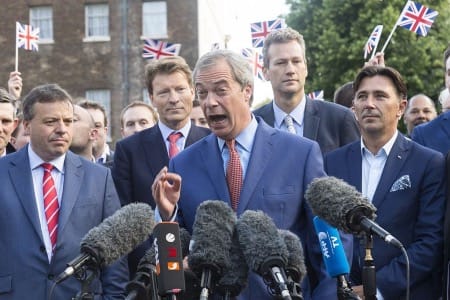
And that was really when I realised, we had a little blip where I thought people were trying to make things better and improve the health service, improve education, you know, things were going to be better. And then you realise, actually that is a blip where I feel like we are now on a downward curve.
Manasa: I am curious, so why 2073?
Asif: I didn't want it to be too far off in the future. It's a documentary. I did not have $100 million to make a futuristic film. So I have got to somehow cheat to make a drama and a futuristic sci-fi film out of a tiny amount of a normal documentary budget that I have, which is maybe bigger than what other people have, but it’s not huge.
And to push it, to do something that challenges me creatively. Because as well as being interested in revealing information and stories and great journalism and all of that, I am still a filmmaker. Films are about how they look and sound and you want to make something visually and creatively interesting.
Essentially, it is a year I might not be around, but my kids would be around. What is the world going to look like when my kids are a bit older? That was the idea.
And then also there's a simple graphic element, I like the way it looks.
Manasa: That's a good enough reason!
Asif: Yeah, a lot of filmmaking is just like, it looks good.
Manasa: I was also going to flip that question and ask, do you think calling it 2073 was a bit optimistic? Given the trends we are seeing now in the present?
Asif: I mean the reality is - it is about last week, is it not? It is basically yesterday [the US Presidential inauguration]. The film has always been like a joke, to say, look how scary the future is going to be. But sci-fi always plays with that idea, whether it's dystopian literature or anything futuristic. It’s talking about 'now', but framed in a way that is palatable. It makes it safe. You can go and watch it and forget about it. But there might be something hidden in there. So I thought, can I play with those tricks and rules? The scariest things in the film are factual. The most terrific, epic scenes, what would classically be in a feature film, the special effects, they are all real. They are all factual things. Everything else we have constructed. So, yeah, the idea is it is now. It is obviously now.
I set it in the future to kind of give people a little excuse to say, you can still stop that happening if you do something now.
The extract was slightly edited for clarity and brevity.

